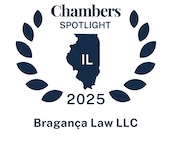- Free Strategy Session: (847) 906-3460 Tap Here to Call Us
Is Customer Harm Necessary for Regulatory Enforcement?

Updated January 9, 2026
When a prospective client call us, they often tell us they don’t understand why they are being investigated because no customer complained and nobody lost any money. They believe once they show the SEC or FINRA or a state securities regulator that there is was no harm to any customer, the investigation will end with no action. Unfortunately, this is NOT TRUE.
This Violation Has No Victim; This Violation Needs No Victim
We typically understand a “victimless crime” is an act that breaks the law but does not directly harm another person – things like illegal gambling and speeding in a deserted area. In the highly complex and regulated business of finance, the line between a technical legal violation and a crime with a clear victim simply does not matter. Many government enforcement and criminal actions, from insider trading to market manipulation, are built on a theory that does not require any identifiable victim. For individuals and companies facing an investigation of such an offense, understanding this “myth of the victimless crime” is the first step in reckoning with the possible consequences of a government investigation.
Technically…That’s a Securities Law Violation
While the current Trump administration changing a lot, the SEC has continued to investigate and bring cases seeking to impose substantial civil penalties on financial services companies for what most would consider entirely technical violations of the securities laws. For example, there are the recent “off-channel” electronic communication settlements, where firms failed to ensure communications financial advisors had with clients on WhatsApp were retained in the firm’s books and records. In addition, the current administration has targeted financial firms for:
- Violations of “the custody rule” (SEC’s Rule 206(4)-2), a requirement that registered investment advisors (“RIAs”) arrange and submit to “surprise” annual examinations of their account recordkeeping (the firms violating the rule by failing to identify themselves to the SEC);
- Running afoul of Rule 105 of Regulation M which regulates certain short selling activities; and
- Failing to keep proper records for backdating certain documents subject to an SEC review.
In none of these cases was any investor harm alleged and all imposed substantial penalties and/or injunctive relief.
Where’s the Fraud?
There are many federal securities laws and regulations (as well as FINRA rules) completely unrelated to customer harm that can lead to fraud charges. Here are some examples:
- Insider Trading: Consider a classic insider trading case. An executive uses non-public information to sell shares of company stock. The person who bought those shares on the open market was already there, willing to buy at that price from any seller. They were not coerced or directly deceived by the executive. Had the executive not sold, they would have simply bought from someone else. While the executive had an informational advantage, it is difficult to argue that the counterparty to the trade was a “victim” in the conventional sense. Nor is that required.
It is important to recall that in an insider trading case, the harm is to the owner of the information that was misused. Nevertheless, the government makes no effort to use the funds “disgorged” or recovered from the violator to compensate the owner of the information or the counterparty to the trade.
- Market Manipulation: Certain forms of alleged market manipulation, such as “spoofing” or “wash trading,” are prosecuted because they create a false appearance of market activity that moves markets. While the government argues this deceives the entire market, the government does not have to identify a specific trader who was concretely harmed. Even if there are identifiable victims (like market makers), the funds “disgorged” to the government are not paid to the victims.
- Acting as an Unregistered Broker – Federal and state securities law require that securities be sold only by registered brokers. Often salespeople discover after the fact that they are under investigation for selling an investment they were reasonably led to believe was not a security or fell within an exemption from registration as a security. That was the basis for many charges brought against cryptocurrency platforms that sold digital tokens the SEC and state regulators concluded met the definition of “securities.” While the current administration has backed off of cryptocurrency enforcement actions, there are many other types of investments that securities regulators have concluded were securities therefore required to be sold only by registered brokerage firm agents.
The “Market” is the Victim Even if Nobody in the Market is Hurt
The SEC and other federal and state authorities argue in these types of cases that the victim is not necessarily a single person but the integrity of the U.S. financial markets as a whole. The SEC’s view is that such conduct leads to an erosion of trust by harming public confidence in the stock market. If investors believe the market is a “rigged game” where insiders and manipulators have an unfair advantage, they will be less likely to invest. This can theoretically damage capital formation and the health of the economy. In fact, even during the recently concluded government shutdown when over 90% of SEC staff was on furlough, none of the new cases filed by the remaining “skeleton staff” sought the type of emergency relief such as temporary restraining orders or asset freezes that would indicate the SEC was concerned about about redressing individual investor harm.
Of course, it is hard to square the SEC’s supposed concern about “market integrity” at the same time the SEC is overhauling its regulations to allow or encourage even the most unsophisticated investors to purchase private equity – an asset class subject to virtually no disclosure requirements.
Even in the criminal context, the Supreme Court affirmed the principle that no monetary loss need even be alleged for someone to be found guilty of fraud. In Kousisis, et al. v. United States, 145 S. Ct. 1382 (May 22, 2025), the Supreme Court unanimously upheld the conviction of a contractor and one of its managers for getting a contract with the Pennsylvania Department of Transportation (PennDOT) based on the false promise that it would obtain materials from a “disadvantaged business enterprise.” Although there was no allegation that the work was not performed in compliance with the contract, the contractor was found guilty of fraud. The Supreme Court upheld the conviction, concluding the defendants could be convicted for fraudulent inducement even if prosecutors did not allege that PennDOT lost any money as a result of the defendants’ lies. Obtaining money through lies was sufficient to support the conviction.
How bad can it be?
- Disgorgement of Fees and Commissions: Even in scenarios where no investor suffered a direct financial loss, an individual or entity might be charged with improperly obtaining payments when the law was violated. The SEC has the authority to seek “disgorgement” of these payments (called “ill-gotten gains”), which is an equitable remedy designed to prevent wrongdoers from profiting from their illegal conduct. This means that any benefit derived from the violation – profits, avoided losses, fees, or commissions – can be sought by regulators as disgorgement. For example, a corporate executive who sells shares based on material non-public information, thereby avoiding a significant personal loss before negative company news is publicly announced, would typically be considered by regulators to have obtained an “ill-gotten gain” in the form of the avoided loss. This is true even if other investors didn’t lose money because of that specific trade.
- While there is some dispute among the courts as to whether disgorgement is allowed when there is no showing that investors suffered a pecuniary loss, the majority position is that disgorgement is allowed in such situations. The U.S. Supreme Court agreed to hear the appeal of the Ninth Circuit’s opinion affirming a disgorgement judgment where no pecuniary loss was established. See Ongkaruck Sripetch v. SEC, No. 25-466 (Oct. 14, 2025). Importantly, the SEC had taken the fairly unusual step of agreeing with the petitioner that the Supreme Court should hear the case, but only because it wants the Supreme Court to resolve the circuit split and affirm that pecuniary loss is not necessary for the SEC to obtain disgorgement in such circumstances.
- Imposition of Civil Penalties: Beyond disgorgement, the SEC can impose significant civil monetary penalties for violations of securities laws. These penalties are distinct from disgorgement and serve as a direct punishment for the misconduct.
As the Supreme Court affirmed in SEC v. Jarkesy, 601 U.S. 109 (2024), when the SEC seeks civil penalties for securities fraud, these penalties are punitive in nature, designed to punish or deter the wrongdoer rather than solely to restore the status quo. This distinction underscores that the SEC’s ability to seek civil penalties is not contingent on demonstrable investor loss or the ability to provide restitution to specific individuals.
- Industry Bars: Furthermore, the SEC possesses the critical power to issue industry bars, prohibiting individuals from serving as officers or directors of public companies, or from participating in various capacities within the securities industry (e.g., as a broker-dealer, investment adviser, or accountant). These bars are supposed to remove individuals who have violated the securities laws from positions where they could commit further violations, to protect the public and the markets, independent of whether specific victims are present in a given case.
- Obey the law injunctions/orders: The SEC and state regulators routinely seek injunctions or administrative orders requiring a defendant to obey the securities laws. That might seem innocuous, but it has serious collateral consequences. First, being subject to an injunction may mean you are considered a “bad actor” who cannot be part of management of a firm that is selling securities or that has investors. Second, an injunction or administrative order may have to be disclosed in various contexts, like on personal loan applications, in applications for government licenses, or when seeking to raise money for a business venture. These injunctions and administrative orders do not terminate on their own so the risk of inadvertently violating them years down the road is significant.It should be noted, however, that while it is still not the majority approach, courts are increasingly rejecting orders which simply require defendants to “obey the law” for failing to specify the particular conduct being enjoined.
What Should You Do?
If you sell anything that you conceivably think could be considered an investment product, if you are working in the finance industry, or if you are involved in raising money for a business venture, you should seek advice to ensure you are complying with the law. If you receive a subpoena from the SEC or other securities agency, you should not respond on your own – even if you are not aware of any harm to anyone. The lack of harm is not going to lead the regulator to go away. You need to immediately retain a lawyer who can assist you with responding to the subpoena or information request to help you get the best possible result while taking steps to protect you from having something administrative or civil escalate into a criminal prosecution.























